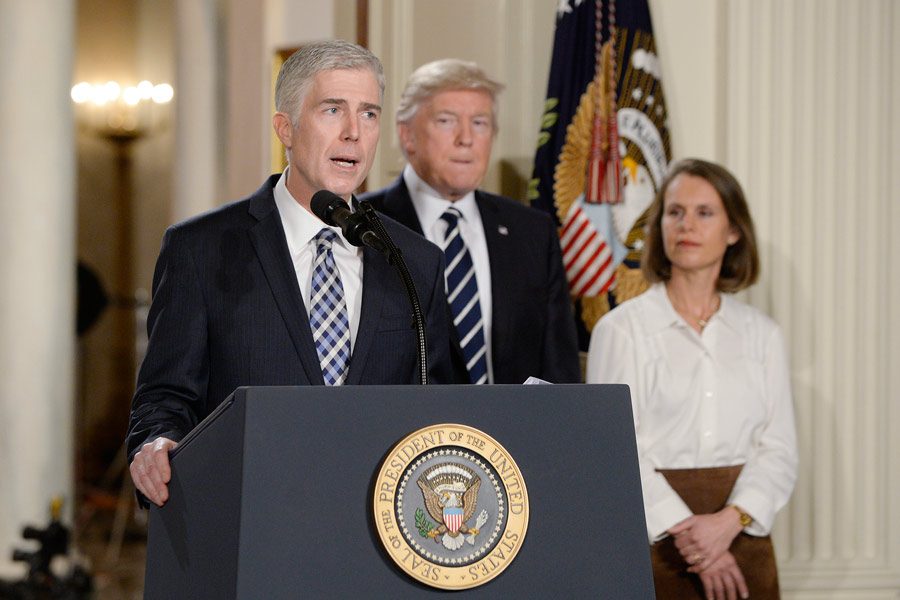Gorsuch nominated for Supreme Court
Supreme Court nominee Judge Neil M. Gorsuch speaks in the East Room of the of White House in Washington, D.C., on Tuesday, Jan. 31, 2017. Photo by Olivier Douliery
February 9, 2017
President Donald Trump announced Judge Neil Gorsuch as his nominee for the U.S. Supreme Court on Jan. 31.
Upon the death of Justice Antonin Scalia in 2016, the search for his successor in the U.S. Supreme Court has been a controversial issue. In March of 2016, President Barack Obama nominated Judge Merrick Garland for the important position, but his pick was disregarded by the Senate Judiciary Committee on the grounds that the nomination was made at the end of Obama’s term.
Gorsuch, 49, is a federal appeals court judge and is generally respected by those in the judicial branch of the U.S. Government. He is known for his strict interpretation of the U.S. Constitution, and has strong Conservative values. His appointment to the Supreme Court has the potential to weigh its votes in favor of the Republican Party, as his supporters hope.
A graduate of Harvard and Columbia Universities, Gorsuch is the son of former Environmental Protection Agency director Anne Gorsuch Burford. He started his political career in 1991 when he served as a clerk on the U.S. Court of Appeals in Washington, D.C., and has even worked for the Department of Justice before his current occupation as a judge in the U.S. Court of Appeals.
Gorsuch’s qualifications for appointment are not in question, but Democrat politicians are concerned about the nominee and his conservative views on controversial topics like gun control and abortion.
In the months to come after the grand announcement of Gorsuch’s nomination, the U.S. Senate will put him through a process of interviews to ensure his readiness for the prestigious role. Republican and Democrat Senators alike are a part of the vetting process and should accept or reject the Supreme Court appointment by the end of the year.















